While many engineering professionals naturally gain leadership skills as they progress through their career, ensuring that the challenges of tomorrow have the leaders to address them means that it is not enough to simply leave things up to chance. Deliberate leader development programs offer an opportunity for intensive study and tutelage of leadership skills, helping catapult participants up the rungs of the leadership ladder.
Both the San Antonio Post (San Antonio Leadership Lab) and Washington DC Post/Northern Virginia Post (SAME Leadership and Mentoring Program) have a storied history of producing dedicated leaders ready to guide the A/E/C community into the future. SAME recently chatted with representatives of both programs about how they are paying dividends at the local, regional, and national levels of SAME, what are their keys to staying power, and insights for other Posts looking to increase the deliberateness of leadership development among their members.
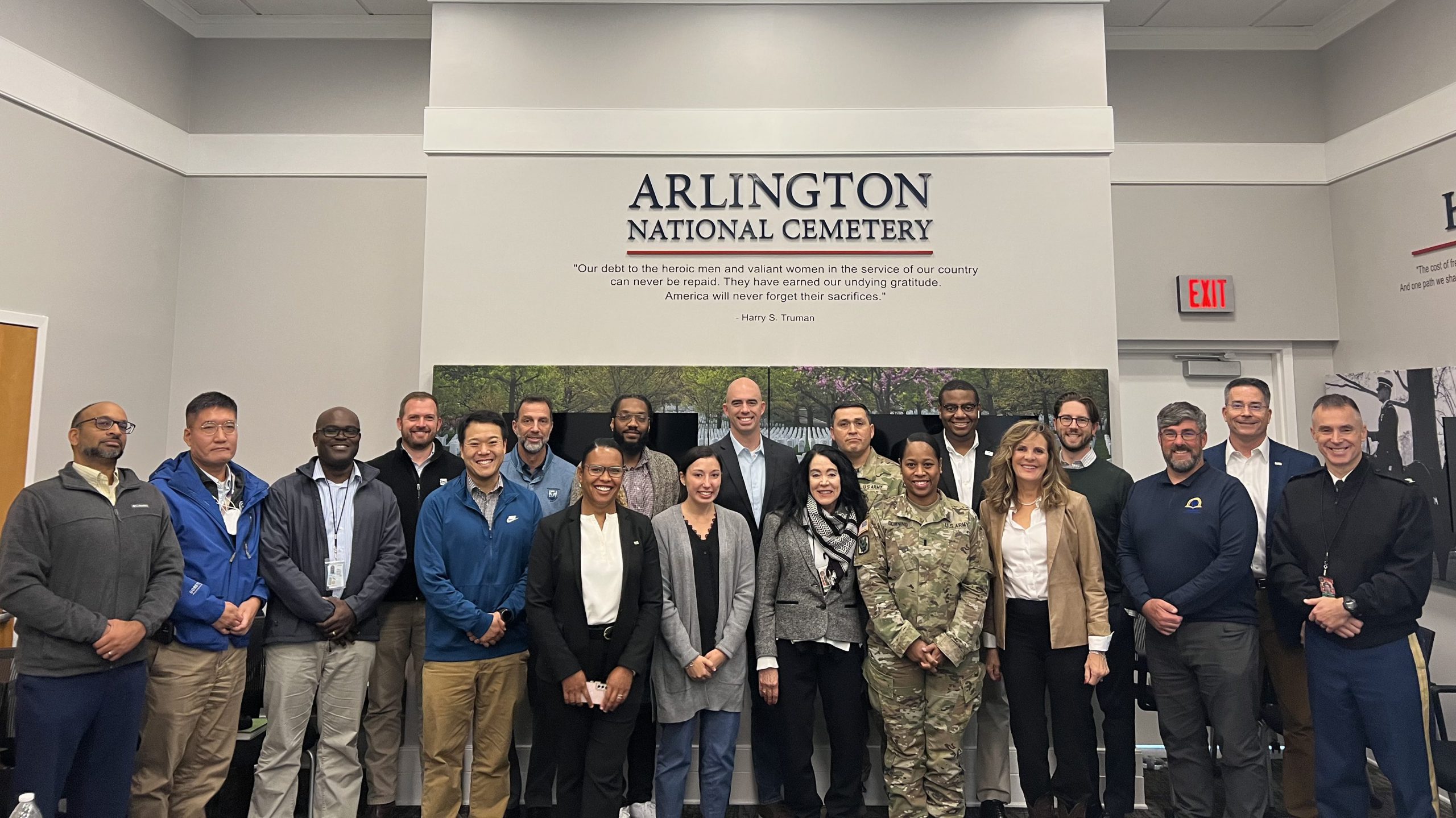
SAME: Can you give us a brief history of your Post’s leader development program and how it was formed?
DC/NoVA: The vision of the SAME Leadership and Mentoring Program began in 2015 under the direction of Bob Wolff, Ph.D., F.SAME, F.ASCE, former SAME Executive Director, and has grown over the last decade to develop the leadership skills and professional growth of our Post’s Young Professionals.
Through monthly sessions with Fellows and senior leaders from defense and civilian agencies, as well as local leaders in the A/E/C industry, our members actively participate in discussions, readings, and collaboration to complete the coursework. The program helps develop emerging leaders within SAME and build excitement about everything the Society has to offer.
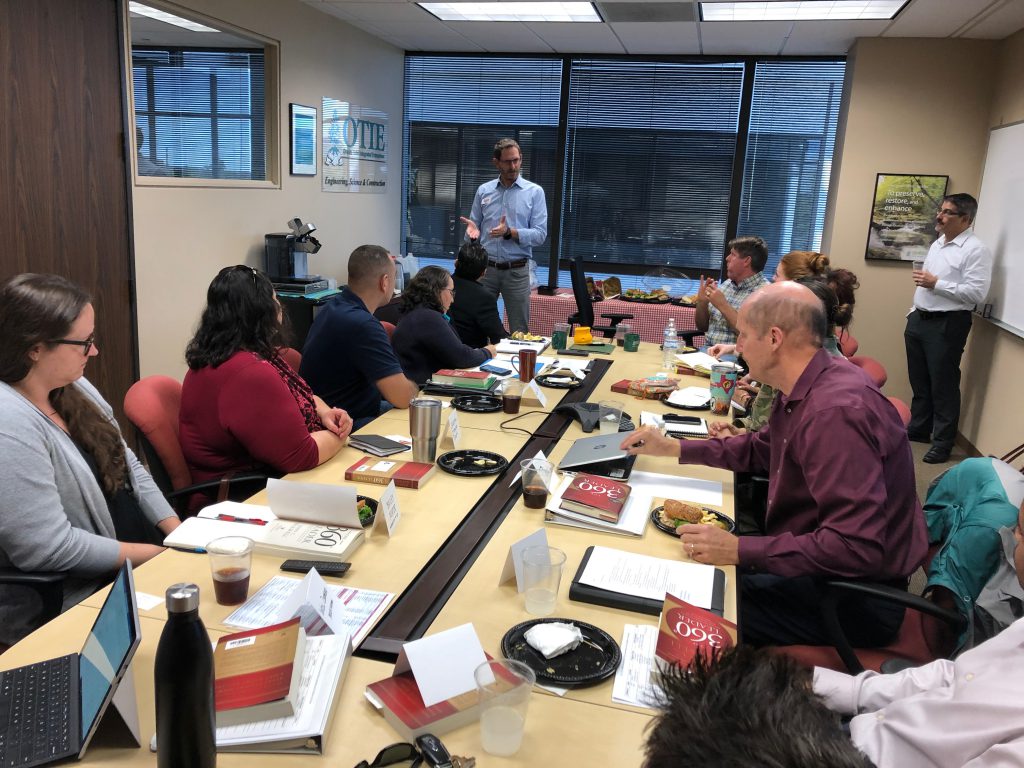
Initially, the program started within the Washington DC Post, then grew to include the Northern Virginia Post and Mid-Maryland Post. After Dr. Wolff stepped down from leading the program in 2020, a team of Fellows and volunteers from each of the three Posts stepped in to help continue this program in 2021. In 2023, the current team is Philios Angelides, F.SAME, Bree Beal, and Catherine Niles (Washington DC Post); and Col. Ed Chamberlayne, Ph.D., F.SAME, USA (Ret.), and Alison Ryscavage (Northern Virginia Post).
San Antonio: The San Antonio Leadership Lab started in June 2010 when our Post Board approved an initiative by the Director of Professional Development to start a Post Mentoring Committee. A group of eight Post leaders and Young Professionals developed the concept over the next several months. It was approved by the Post Board in December 2010.
In 2011, $1,000 was allocated to get it started, and one of the Young Professionals in the development group served as the first director. The concept was an 11-month program with a pair of two-hour sessions each month. While the Leadership Lab started on a calendar-year basis, it eventually evolved to be fall to spring. We have conducted the program in-person, virtually, and now as a hybrid. Although the curriculum has evolved over the years, study of leadership books, local leadership speakers, team building exercises, volunteer activities, personality profiles, mentoring, and professional development planning are all key elements.
SAME: What positive impacts have you seen from your program?
DC/NoVA: We believe one of the greatest successes of this program is watching our Young Professionals graduate and then get involved at both the Post level and nationally within SAME. Just to highlight a few, but there are many recent examples!
“Our Leadership and Mentoring Program is a fairly simple program and does not require too much additional time from participants, as we realize the billability pressures on Young Professionals in industry and the high operating tempo for those in the military and government.”
- Sally Clark, CPSM (2017 graduate) became President of the Mid-Maryland Post and is now the Small Business COI Chair.
- Catherine Niles (2018 graduate) served as Small Business Chair for the Washington DC Post, Awards & Recognition Chair for the Small Business COI, is in the SAME Leader Development Program for 2022-2023, and has volunteered to be one of our Leadership and Mentoring Program facilitators.
- Cathy Otis, RA (2019 graduate) became the Programs Chair of the NoVA Post and is now the Chair of the Architectural Practice COI.
- Master Sgt. Brad Wilson, USAF (2022 graduate) is the current Vice Chair of the Enlisted COI and has volunteered to assist with an event for our 2023 program.
San Antonio: Since 2011, 107 Post members have graduated from the program; 58 percent have been Young Professionals and 28 percent have been from public agencies. Over 50 percent of the graduates who are still in the San Antonio area have followed on to become Post leaders, working on committees, or serve as volunteers in our activities. A total of 21 graduates have served on the Post Board of Direction and five have become Post President. Recently, two graduates were selected for the Academy of Fellows.
Our program has been used as a model to create other Post-level leadership programs, the national SAME Leader Development Program, and the recently started Texas Region Leader Development Program. We have been asked to brief at JETC and Regional JETS.
Many of our Sustaining Member companies recognize the value of the program in developing young leaders for their company and repeatedly enroll their employees each year. Feedback from the graduates is always extremely positive.
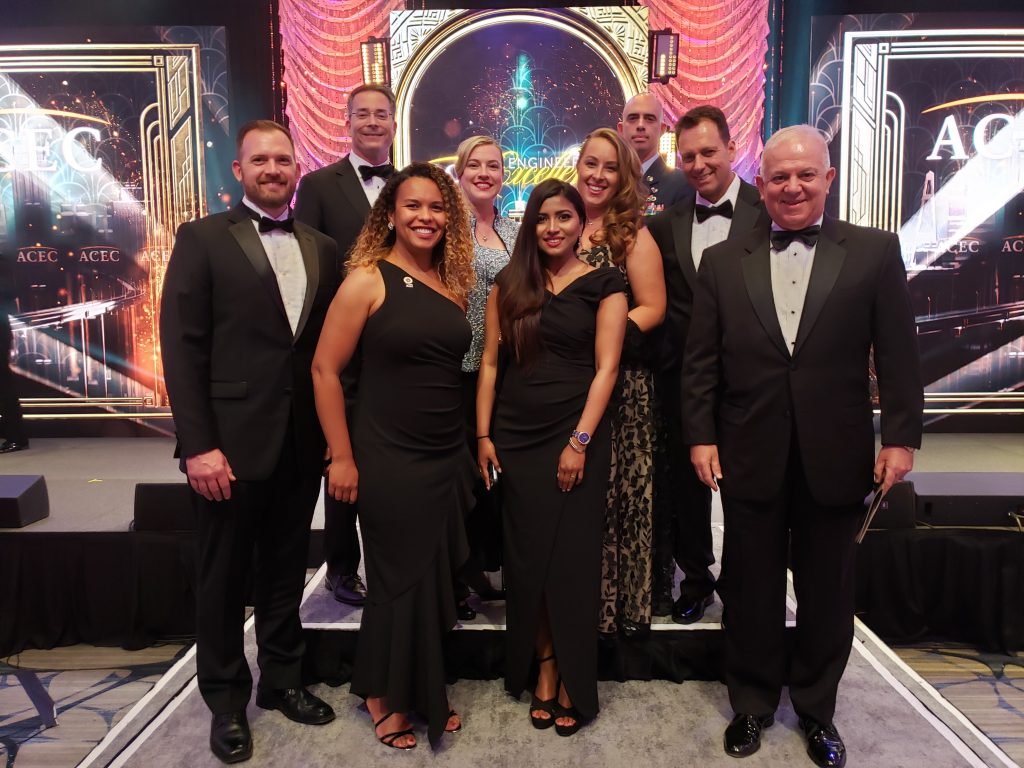
SAME: What would you say have been the keys to the program’s growth and longevity?
DC/NoVA: Our program provides opportunities for participants to grow skills within their current roles at either their firms or positions within the military/government such as business development, decision-making, and leadership. The program also is designed to help them widen their peer network and connect with military, private, or transitioning colleagues. We are certainly geographically blessed to be within the National Capital Region, where we have excellent access to dynamic speakers, key leaders, and several Fellows willing to contribute.
Our Leadership and Mentoring Program is a fairly simple program and does not require too much additional time from participants, as we realize the billability pressures on Young Professionals in industry and the high operating tempo for those in the military and government. There are also many optional opportunities within our region to network at local major awards events that our program offers to our participants.
San Antonio: Foremost is our commitment to the professional development of members and the commitment of Post leaders and senior members to help in the development of future leaders. Our member companies and agencies also recognize the benefits of the program and allow time for their employees to participate. Past graduates have been our best marketing tool by spreading the word about how they personally benefitted from the program and encouraging other members to participate.
SAME: What are the main challenges facing the program?
DC/NoVA: Similar to every other initiative within SAME, our program’s success heavily depends on sustaining a pool of volunteers willing to contribute time and expertise. Luckily, we have been very successful doing this in recent years. Now, in a post-COVID environment, with a majority of the participants working in either remote or semi-remote positions, planning in-person events for the program is even more important. While it has become a little more difficult, it is very welcomed by our class.
“Many of our Sustaining Member companies recognize the value of the program in developing young leaders for their company and repeatedly enroll their employees each year. Feedback from the graduates is always extremely positive.”
It is also important to have the support of local A/E/C firms encouraging their Young Professionals to participate and get exposure to topics that will help them advance. We are challenging ourselves to keep the topics fresh and improve participation. Sometimes we find ourselves talking to the class as opposed to having the participants engage with each other and the speakers.
San Antonio: There are two main challenges. The first is continuing to recruit students given the number of graduates we already have and competing with other programs that have emerged over the last few years, both internally at member companies but also in other nonprofits.
The second challenge involves getting participants to commit the time and energy to the program while still balancing their work and personal commitments.
SAME: What advice would you give other Posts looking to start their own leader development program?
DC/NoVA: Keep the plan relatively simple and don’t overcomplicate it with lots of requirements. The main intent is to build excitement about SAME, develop leaders within Posts and COIs, and expand the network of participants beyond their current organization/company. Also, look for ways to have multiple Posts collaborate in building a program. By sharing resources and networks of firms and Young Professionals, there is a better chance of success in developing and implementing the program. Upfront planning will save you time and effort in the long run. At the end of the program, capture “lessons learned” by talking with the participants, guest speakers, and facilitators to improve the course each time. Keep records for quick reference and re-use of materials. Create an online repository to coordinate sharing of information. Let the participants have fun, too, with happy hours or social events outside the learning sessions to build camaraderie.
San Antonio: The Leader Development Community of Interest developed a Leader Development Toolkit that gives Posts ideas on how to develop a leader development program regardless of their size and capabilities. The toolkit was developed using the San Antonio Post Leadership Lab and other national and Post programs as a guide.
After reviewing the toolkit, work with your Young Professionals and member companies/agencies to assess what kind of leader development is needed for their organization. After determining the level of commitment your members have to support it, develop a program that is scalable to that commitment and your Post. It doesn’t have to be a full program like ours either. For your Post, it may be a short series of webinars or some mentoring sessions on key leadership topics.

Post Best Practices
Post Best Practices focuses on exemplary programming, events, and outreach conducted by SAME’s local Posts. Through these interviews, Post leaders share their insights, lessons learned, and knowledge on how they are making an impact on the engineering needs of the communities where they live and work.
-
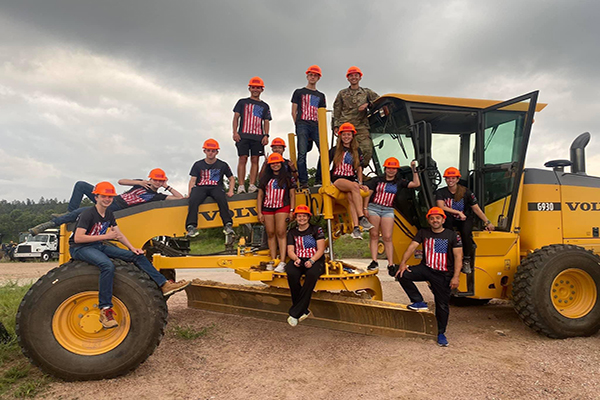
Post Best Practices: A High Bar in Hampton Roads
TME recently chatted with leaders of the Hampton Roads Post to talk about their commitment and involvement to SAME’s STEM/Engineering & Construction Camps. -
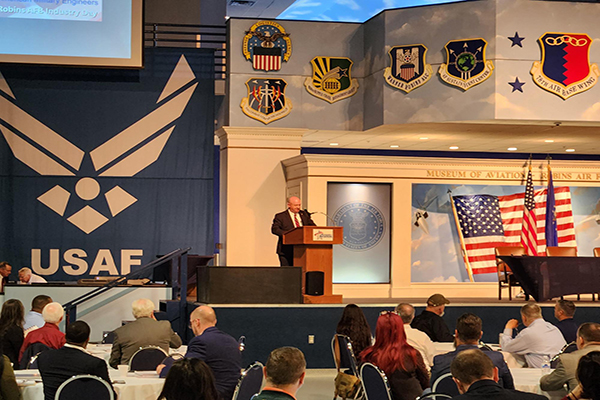
Post Best Practices: Meeting Member Needs in Georgia
TME recently chatted with leaders of the Robins AFB Post to talk about their engagement with the installation, how they approach the development of programs and events, and ways that they are tackling the challenges unique to small Posts. -

Post Best Practices: Dreaming Big With the Knowledge Network
The Knowledge Network for SAME initiative will streamline the process for Posts, Communities of Interest (COI) and other Society groups to bring SMEs willing to share their expertise.